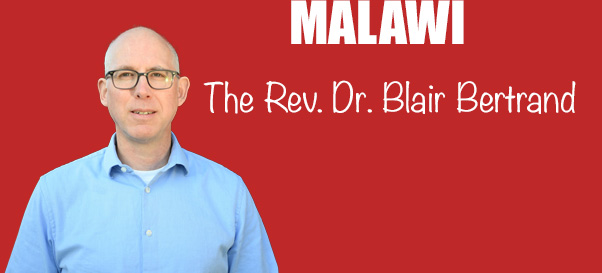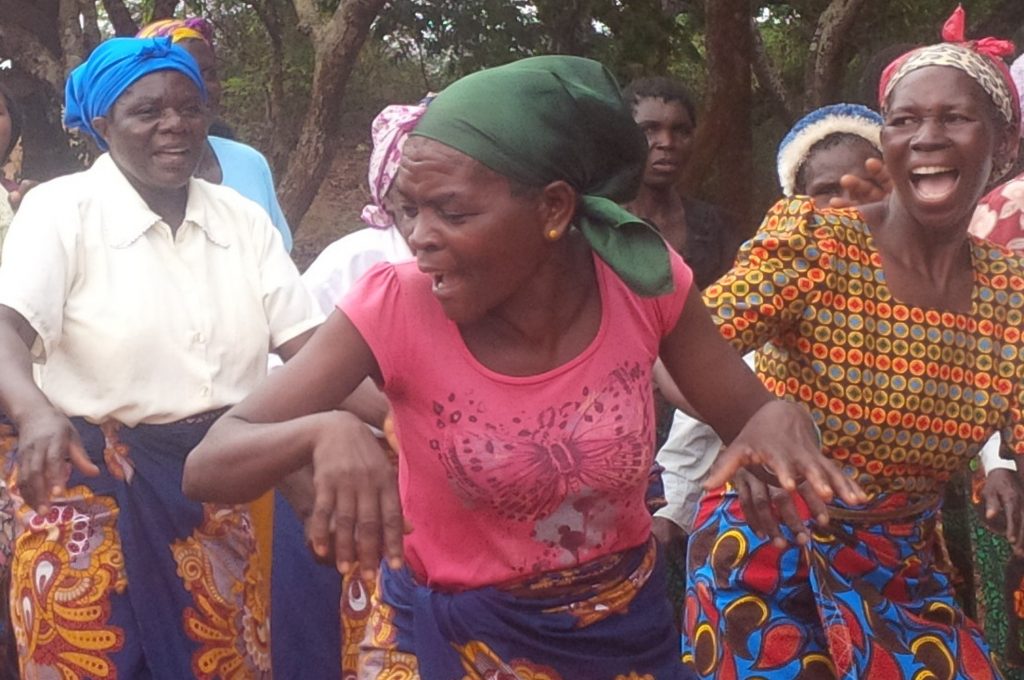They were already singing and dancing when we got out of the car: 40 women in colourful clothing under a tree on a hot day. I wish I could bring you there right now so that you could hear the singing, see the dancing, feel the joy and experience northern Malawi. I hope the photo of them (above) helps to transport you there.
There were four of us—Geoff Zakaib, board member of Presbyterian World Service and Development (PWS&D); our intrepid driver, Norton; the program coordinator, Webster Moyo; and me. We were travelling to rural villages in northern Malawi so that Geoff and I could see first-hand the work of PWS&D.
These women are part of several small groups called ‘Self Help Groups’ of approximately 15 women who pool their resources and then loan money out to each other to invest in income-building activities. On a regular basis, they pay the money back with a low interest rate, and their pool of wealth increases. Because they don’t have any collateral, these women would not be able to get a bank loan on their own.
One woman spoke of her chickens that she was able to buy. Now she is selling eggs and recently built a new house. Another woman borrowed money from the group to buy 3 pigs and another now runs a small grocery store. Another was able to build a new house, and she was very proud of the concrete floors. These women are mostly widows or single women, but they have seen huge changes in their lives over the four years that the project has been running.
PWS&D has helped local partners start women’s ‘Self-Help Groups’ in villages in Malawi by providing the funding for a coordinator who helps the women with financial literacy and running the groups. The program is run by the Ekwendeni Hospital Aids Program (EHAP), and it has been extremely successful in assisting communities in the region. I was so encouraged to hear about how these women, with the little they had, were able to accomplish so much and improve their lives by working together. These women are strengthening each other and their communities.
This idea isn’t new. The Bangladeshi economist who founded the Grameen Bank—Mohammed Yunus—understood the value of helping women in poverty with small business ventures. He began by loaning a small amount of money to a group of women and saw that they were able to pay the money back and improve their lives by working together. Over time he found that women (when compared to men) were most likely to pay the money back in full and on time. As well, they were more likely to use their profits to improve their children’s lives. Yunus found that men were more likely to spend money on themselves, rather than their families, and they didn’t always pay back the money loaned to them. (For more information on why Grameen has focused on lending money to women, see Dr. Katharine Esty’s post.) The Grameen Bank has now been running since the 1970s, and still 97% of its funding goes to women (http://www.grameen.com).
It is clear in Malawi that women and girls face many, many challenges such as low school attendance, early marriages, sexual assault, domestic violence, and the list goes on. In many ways, women and girls are the key to poverty reduction in Malawi, and it was very encouraging to see the work done by PWS&D in Malawi.



